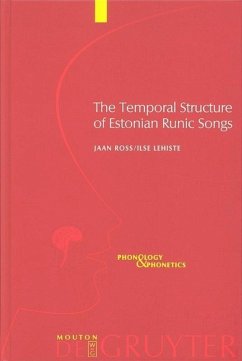Nicht lieferbar

European Voices, w. DVD and Audio-CD
Cultural Listening and Local Discourse in Multipart Singing Traditions in Europe
Herausgegeben von Ahmedaja, Ardian; Mitarbeit: Raciunaite-Vyciniene, Daiva; Marjanovic, Zlata; Jordania, Joseph; Gabisonia, Tamaz; Dahlig, Piotr; Peycheva, Lozanka Georgieva
Versandkostenfrei!
Nicht lieferbar
Although the fundamental meaning of basic terminology is well established for every scholarly discipline, many concepts are often questioned and redefined. In the case of ethnomusicology, this process is all too familiar, as researchers within the discipline focus on the most diverse of music cultures. The manifold worldviews of the resource persons make the matter more complex. Such a situation has particular significance in the context of multipart singing, because of its specific musical aesthetics and vocabularies. Moreover, it is accentuated by processes of change within everyday practice...
Although the fundamental meaning of basic terminology is well established for every scholarly discipline, many concepts are often questioned and redefined. In the case of ethnomusicology, this process is all too familiar, as researchers within the discipline focus on the most diverse of music cultures. The manifold worldviews of the resource persons make the matter more complex. Such a situation has particular significance in the context of multipart singing, because of its specific musical aesthetics and vocabularies. Moreover, it is accentuated by processes of change within everyday practice and in ethnomusicology. Examining this question from the viewpoint of local terminology primarily means considering specific and individual concepts of cultural listening and particularities of local discourse, which stimulate analytical attention to the most profound details of the area under discussion.











